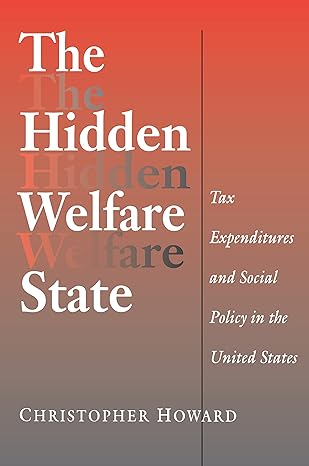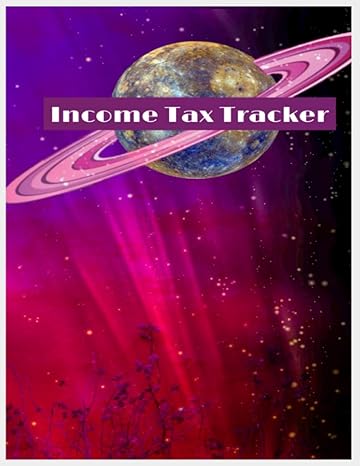Go back


The Hidden Welfare State Tax Expenditures And Social Policy In The United States(1st Edition)
Authors:
Christopher Howard

Cover Type:Hardcover
Condition:Used
In Stock
Include with your book
Free shipping: April 04, 2024Popular items with books
Access to 3 Million+ solutions
Free ✝
Ask 10 Questions from expert
200,000+ Expert answers
✝ 7 days-trial
Total Price:
$0
List Price: $4.88
Savings: $4.88(100%)
Book details
ISBN: 069100529X, 978-0691005294
Book publisher: Princeton University Press (February 22, 1999)
Get your hands on the best-selling book The Hidden Welfare State Tax Expenditures And Social Policy In The United States 1st Edition for free. Feed your curiosity and let your imagination soar with the best stories coming out to you without hefty price tags. Browse SolutionInn to discover a treasure trove of fiction and non-fiction books where every page leads the reader to an undiscovered world. Start your literary adventure right away and also enjoy free shipping of these complimentary books to your door.
The Hidden Welfare State Tax Expenditures And Social Policy In The United States 1st Edition Summary: Despite costing hundreds of billions of dollars and subsidizing everything from homeownership and child care to health insurance, tax expenditures (commonly known as tax loopholes) have received little attention from those who study American government. This oversight has contributed to an incomplete and misleading portrait of U.S. social policy. Here Christopher Howard analyzes the "hidden" welfare state created by such programs as tax deductions for home mortgage interest and employer-provided retirement pensions, the Earned Income Tax Credit, and the Targeted Jobs Tax Credit. Basing his work on the histories of these four tax expenditures, Howard highlights the distinctive characteristics of all such policies. Tax expenditures are created more routinely and quietly than traditional social programs, for instance, and over time generate unusual coalitions of support. They expand and contract without deliberate changes to individual programs. Howard helps the reader to appreciate the historic links between the hidden welfare state and U.S. tax policy, which accentuate the importance of Congress and political parties. He also focuses on the reasons why individuals, businesses, and public officials support tax expenditures. The Hidden Welfare State will appeal to anyone interested in the origins, development, and structure of the American welfare state. Students of public finance will gain new insights into the politics of taxation. And as policymakers increasingly promote tax expenditures to address social problems, the book offers some sobering lessons about how such programs work.
Customers also bought these books
Frequently Bought Together
Top Reviews for Books
William T
( 5 )
"Delivery was considerably fast, and the book I received was in a good condition."










